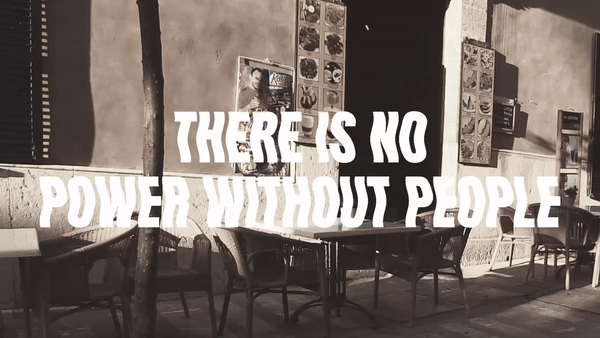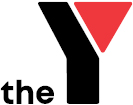-
Democracy Explainer
Explainer: What is a democracy, what are the benefits and what are the types?
“People shouldn't be afraid of their government. Governments should be afraid of their people.”
You may remember this quote from Alan Moore when he played a freedom fighter in the 2005 action film V for Vendetta, which is set in a futuristic and totalitarian Britain and explores freedom and its relationship with anarchy or the absence of government.What is a democracy?
According to the parliamentary education office, democracy means rule by the people. The word originates from the ancient Greek words ‘demos’ (the people) and ‘kratos’ (to rule). In a democratic country, there is a system of government where people have the power to participate in important decision making.
Every democracy is unique and operates differently, in some democracies citizens assist in making decisions directly by voting on laws and policy proposals (direct democracy). In others, like Australia, citizens choose representatives to make decisions on their behalf (representative democracy).What makes Australia a democracy?
Australia’s democracy is supported by four key ideas:
• Active and engaged citizens - citizens have a voice and can make changes in society
• An inclusive and equitable society - we work towards a society where everyone feels respected and free
• Free and franchised elections - we get to stand for election and choose who makes decisions on our behalf
• The rule of law for both citizens and government - everyone is equal and must follow the law
What are the benefits of democracy?• There are methods to resolve differing views and conflicts peacefully
• Respect for human dignity
• The freedom to act, speak and think freely but it must not prevent others from doing the same.
• Equality before the law
• Safe and secure community
• An efficient, transparent, responsive and accountable government to citizens
• Ability to hold elected representatives accountableWhat are the three types of democracy?
According to Science ABC, there are eight main types of global democracies.
Direct democracy:
Citizens get to vote for a policy directly without representatives or houses of parliament. A country under this democracy is Switzerland.Representative democracy:
This is the most popular form of democracy around the world. People choose to vote for who will represent them in a parliament. A country under this democracy is Australia.Presidential democracy:
The president of a state has a significant amount of power over the government. They are either directly or indirectly elected by citizens of the state.Parliamentary democracy:
A democracy that gives more power to the legislature is called a parliamentary democracy. The elected legislature (parliament) chooses the head of the government (prime minister) and may remove the prime minister at any time by passing a vote of no confidence.Authoritarian democracy:
Only the elites are a part of the parliamentary process. The individuals of the state are allowed to vote for their chosen candidate, but “regular people” cannot enter the elections. Therefore, it is only the ruling elite that decide on the various interests of the state’s population. Russia under Vladimir Putin is an example of this type of governance.Participatory democracy:
The participatory form of democracy aims to create opportunities for all members of a population to make meaningful contributions to the decision-making process. It empowers the dis-empowered by breaking up the state into small networks and prefers to empower community-based grassroots politics.Islamic democracy:
This form of democracy seeks to apply Islamic law to public policies, while simultaneously maintaining a democratic framework.
In the film V for Vendetta, Moore believes in a free society.
“Knowledge, like air, is vital to life. Like air, no one should be denied it,” he says.
Savannah Pocock is a third-year Bachelor of Media and Communications (Journalism) student at La Trobe University. You can follow her on Twitter @Savannah_Pocock -
Let's rule the world with freedom
Theme: democracy, I had fun designing this poster, I really like how this turned out.

-
People Power
Reflecting on what this year’s Federal Election means to me as a young person
Democracy comes from the Greek word ‘Demos’ meaning
People
and ‘Kratos’ meaning
Power
This years election was one I’ll never forget. To be honest, it’s the first Australian election that I’ve ever really cared about, or paid any attention to. As someone who is too young to vote I felt as though my opinion was invalid and to be honest, I grew anxious of the fact that my future was in the hands of one the these major party leaders who would make decisions, debate in parliament and legislate bills that will impact my life forever, not just for the few years that they’ll hold power. And what worried me even more as a young person is that these leaders, were to be voted in by old, old, people, who didn’t represent me, or my future.
Or so I thought.
This years election was symbolic of change. And when I think about democracy I think about change. I sat there on my couch on election night watching those seats turn Red, Blue, Green or Teal and I saw change. After years of downright disappointment by a particular government who shall not be named, we saw change. We saw seats that are usually held by the major parties, move to the Greens and Independents. Now wherever you stand politically, put that aside for a moment if you can. We’re living in such an iconic time where parties that care about the planet and the future of our planet are getting a voice in Federal. Parliament.
My concerns as a young person are finally going to be heard and debated, and solutions may finally be discussed. We’re finally seeing that people care about and are voting in favour of clean energy, reducing emissions, increasing the living wage, making housing more accessible, making healthcare and education more accessible, all of these things to benefit young people and our futures are finally being heard and people, not just young people, actually care.
I finally feel like for the first time, our voices are being heard. And we’ve had to be loud, we’ve had to be disruptive, we’ve had to be an inconvenience, but if that’s what makes them hear us then so be it. For the first time I feel like my future is in good hands, and that’s the ‘power of the people’.
By Michaela Mulenga (17, VIC) -
The King

‘The King’ is a gif depicting short clips of empty spaces in a loop with a wavy text, ‘There is no power without people’. I chose videos of empty spaces such as places, that are known to be populated, appear with the absence of people with the addition of the text to drive an idea that people are the source of power. People are the driving source of the way a society works. For there to be a leader that guides the people, the leader must guide in the interest of the people because in the end, power comes from the people.
“The King” is inspired by the quote;
“A king exists for his people. Without his people, there can be no king.”
—Ling during a confrontation with King Bradley. Fullmetal Alchemist (Manga), Volume 12: Chapter 46I created the gif as a reminder that the people in power are incapable without the power of the people. We have the choice to give them power. We have the voice to hold them accountable for the way our society functions. That is what democracy is to me.
Zahra
